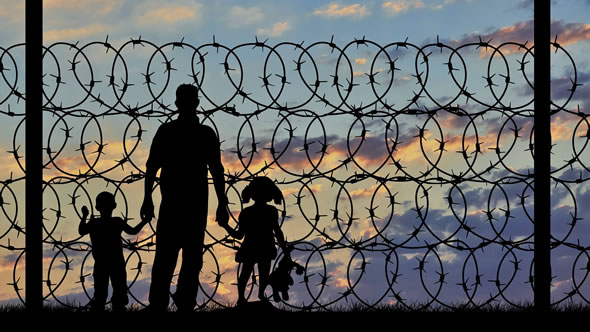Brussels – ESI at public debate: "Fighting fences - Fighting populists"

ESI Senior Analyst Alexandra Stiglmayer was one of the speakers at the event "Fighting fences – Fighting populists: political and policy implications of migration", which was organised by the European Liberal Forum and the Hungarian Republikon Institute at the European Parliament on 22 June. The organisers sought to explore the political consequences of the 2015 refugee crisis, in particular the rise of anti-immigrant populist parties, and the potential of incoming migrants to address the need for skilled labour in the EU. Their overall aim was for the debate to contribute to a future liberal strategy concerning illiberalism, populism, migration and employment.
Looking back at the events of 2015, Alexandra showed how Hungary's Prime Minister Victor Orban used the refugee crisis to advance his illiberal agenda. His political opponent at the time, German Chancellor Angela Merkel, saw the need for the EU to live up to its obligations under the UN Refugee Convention, but also the necessity to control and reduce the influx of refugees. As the EU-Turkey refugee agreement was designed in March 2016, "it combined border control with compassion", said Alexandra. While it has dramatically reduced the number of refugees crossing from Turkey to Greece, its implementation has not lived up to many of its other goals. Among the shortcomings that Alexandra listed was the low number of Syrian refugees that have been resettled from Turkey to the EU (6,907 so far); the inability of the Greek asylum authorities to quickly resolve claims of arriving refugees, and to send those who do not qualify for protection in the EU, or for whom Turkey is safe, back to Turkey (a total of 1,217 have been returned); and the appalling conditions on Greek islands.
She said the most important lesson to be drawn from the agreement is that numbers can be reduced and that migration cooperation with other countries is indispensable; and that both can and should happen in compliance with the Refugee Convention. She said that the high numbers of refugees arriving in Italy need to be addressed differently than the Aegean crisis: that it is again very important to decide the claims of the arriving refugees quickly and to send back those who do not qualify for protection in the EU in order to deter further arrivals. This, she said, requires "take-back agreements" with their (mostly African) countries of origin since no country in the region could play Turkey's role. She explained that the take-back agreements would affect only arrivals after a certain date whose claims are rejected, not threatening those irregular migrants from these countries who arrived many years ago; and that the EU has to offer their governments concrete benefits in return, such as easier work visas and fellowships to study.
Alexandra also expressed her view that asylum policy should not be mixed up with labour market issues. If people qualify for international protection, EU member states should grant it to them, regardless of whether they fill labour shortages or not. However, the EU should make it easier for foreigners with the needed skill profiles to come to the EU. This could be an offer made to African countries of origin as one of the incentives to conclude take-back agreements with the EU.
Other speakers at the event were: Martina Dlabajová, MEP, ALDE; Péter Niedermüller, MEP, S&D; Marcell Lörincz, European Network Against Racism; and the moderator was Csaba Tóth, Director of Strategy, Republikon Institute.
- ESI website Combining border control with compassion - Proposals for the refugee crises in the Mediterranean
- ESI newsletter The most dangerous Wizard in the EU (7 October 2016)
- ESI newsletter A race of plans – Samsom versus Orban – Five steps – Montenegro exodus (8 February 2016)
- ESI newsletter Refugees as a means to an end – The EU's most dangerous man (24 September 2015)
